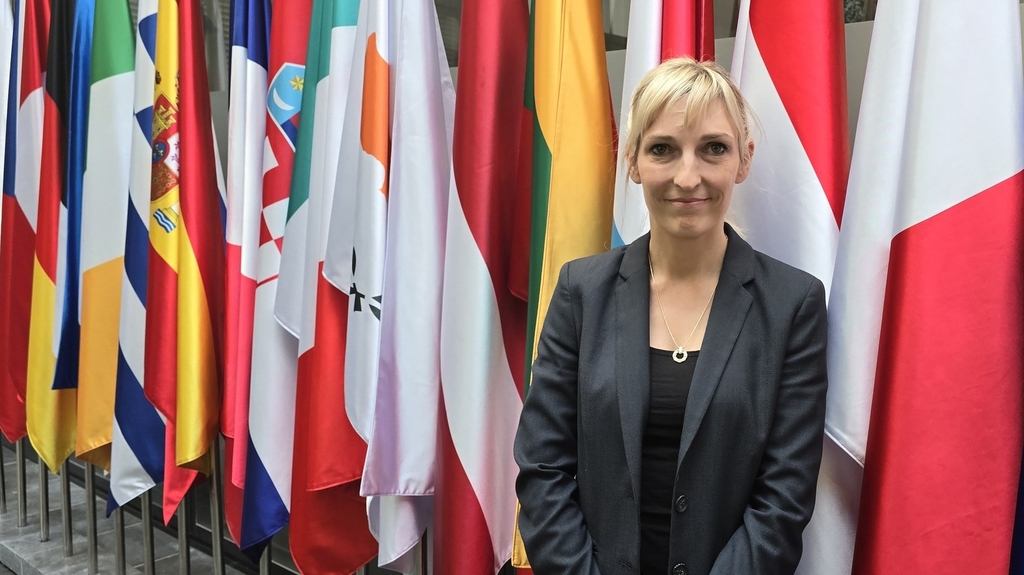From the streets of Luxembourg City to EU peace missions and now Europol in The Hague, police officer Myriam Meyer shares how her passion for international cooperation shaped a dynamic career dedicated to cross-border justice and meaningful impact.
For many police officers, working in the field is the most rewarding part of the job. For Meyer, this was especially true for a long time. She spent five years on the ground in Luxembourg City, gaining valuable experience in areas such as drug-related crime.
She recalls that this period gave her deep insight into the complexity and importance of both preventive and enforcement work in policing.
Her international focus developed naturally. Meyer served in EU peace missions in both Mali and Palestine, which she describes as pivotal experiences. These missions, she says, showed her how diverse and global police work can be, and she found herself thriving in that environment.
Today, she works at Europol’s headquarters in The Hague as a liaison officer within the Luxembourg police bureau. She is one of three representatives from Luxembourg currently stationed at the agency.
The practical side
In practice, her role revolves around information exchange: ensuring that it is fast, accurate, and reliable. While much of the data-sharing process is automated through systems such as the Secure Information Exchange Network Application (SIENA), there are often complex cases that require manual intervention, such as when data is missing, incorrect, or part of a broader cross-border investigation. Since crime does not stop at national borders, Europol steps in to coordinate responses across countries. Meyer explains that their task is often to connect the right international partners to address and resolve emerging threats.
When one country detects a lead or identifies a new trend in organised crime, Luxembourg’s police immediately assess whether there are any corresponding cases or intelligence in the Grand Duchy. According to Meyer, sharing information across borders often leads to new investigative paths, highlighting the critical nature of their work.
Cooperation with other countries
Meyer also spoke about a recent partnership initiative with Montenegro. Luxembourg hosted the head of Montenegro’s analysis bureau, who visited the Criminal Investigation Department (SPJ) and training centres to learn about local practices, according to Meyer.
High-level meetings followed, where both sides exchanged views on strategy and national policing challenges. Meyer notes that Montenegrin officials were particularly interested in Luxembourg’s recent success in attracting new police recruits – a process that significantly expanded the force in a short period of time.
The Hague, a new home?
On the personal side, Meyer’s move from Luxembourg to The Hague was smoother than most. Having frequently relocated during her international assignments, she was already used to the change – and some of her family also lives in the Netherlands. She says everything aligned well, and she felt settled quickly.
The city itself immediately charmed her, particularly its international atmosphere, which she deeply appreciates.
Asked whether she sees herself returning to Luxembourg, Meyer responded thoughtfully. While she still has several years left in her current post, she views her role at Europol as a meaningful chapter in her career – one she accepted with conviction and where she continues to feel the importance and value of the work every single day.
